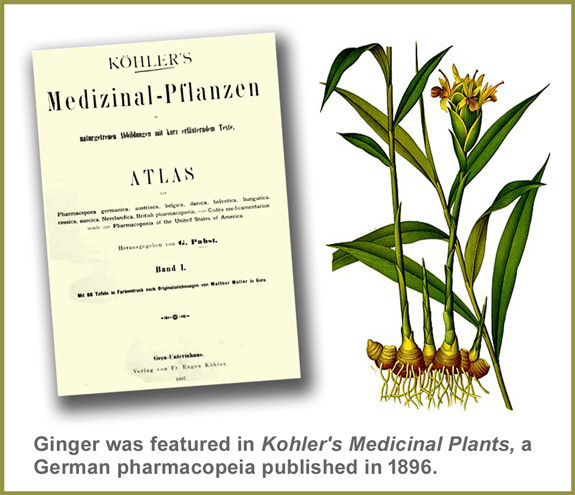Ginger is a flowering plant whose root is widely used as a spice, and, in many cultures, as a traditional medicine.
Ginger’s scientific name is Zingiber officinale.
Ginger has been in use as a food since at least 1,500 BC, and was first recorded as a medicinal in the Analects of Confucius, written in China during the Warring States period (475–221 BC).
Each of the world’s ancient cultures record numerous historical health benefits from ginger, and one of the most prominent and consistent uses is for pain and inflammation.
Each year new studies emerge, corroborating this traditional use—and 2021 is no exception.
Ginger counters autoimmune conditions – U.S. study
A University of Michigan study published in January 2021 reported that the bioactive compounds in ginger had protective effects in diseases such as lupus and antiphospholipid syndrome.
The study, which was conducted on mice, identified 6-gingerol as the active ingredient that was potent enough to “counter the mechanism” that determines the onset of the diseases. Of ginger’s bioactive compounds 6-gingerol is the most abundant, with concentrations up to 2,100 micrograms per gram.
The study, which was published in The Journal of Clinical Investigation, determined that ginger provided an anti-inflammatory effect by reducing levels of pro-inflammatory cytokines, as well as moderating secretion of chemokines at sites of inflammation.
“While it is unlikely that ginger extract or 6-gingerol would find a role as a primary therapeutic in individuals with active disease, one wonders if future studies might administer ginger supplements to individuals at high risk for autoimmune conditions and/or cardiovascular disease,” the study’s authors wrote.
Ginger blocks inflammation – Japanese study
Researchers at Nara Institute of Science and Technology in Nara, Japan found that a compound from the Alpinia species of ginger was effective at preventing inflammation. The study, conducted on mice, utilized the compound 1′-acetoxychavicol acetate found in Alpinia ginger (also known as “tropical ginger”).
The research team reported that 1′-acetoxychavicol acetate “mitigates mitochondrial damage by decreasing mitochondrial reactive oxygen species.” This process blocks activation of a multiprotein complex known as “nucleotide-binding oligomerization.” Many inflammatory conditions begin because of improper activation of this protein complex.
The study was published in International Immunology in July 2021.
Ginger alleviates stomach pain – Indian study
A randomized, double-blind, placebo-controlled clinical study, published in Journal of Dietary Supplements, found that ginger was an effective treatment for functional dyspepsia. Functional dyspepsia is defined by Mayo Clinic as “recurring signs and symptoms of indigestion that have no obvious cause.”
The research was conducted at the Maharaja Agrasen Hospital, New Delhi, India. Study participants were allocated either 200 mg of ginger extract twice daily, or the equivalent dose of an inactive placebo for four weeks.
Results show that at two weeks into the trial, 41% of subjects in the treatment group reported a statistically significant positive response—an improvement that was maintained throughout the trial period. Ginger extract supplementation was found to be effective in 79% of the subjects, while the placebo was found to be 21% effective.
In addition, responder rate in the ginger treated group was 58% higher than placebo group when measured at the fourth follow-up visit.
Ginger is one of the anti-inflammatory ingredients found in Optimal Acute by Optimal Health Systems. See banner ad on this page, or click here to learn more.
– – –
Sources: JCI Insight, International Immunology, Journal of Dietary Supplements.


